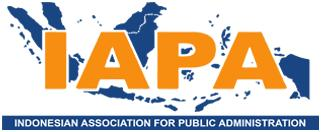Application Of Electronic Justice To Improve Quality Judicial Services At The South Jakarta Religious Court
Abstrak
The focus of this research is the implementation of electronic justice at the South Jakarta Religious Court. The method used in this research is descriptive qualitative by adopting the Grindle model. The level of success is determined by the level of policy feasibility. Primary data was obtained by interviews, observation and data analysis using a spiral model. Research results on policy content components: In the interest affected aspect, the implementation of electronic justice without being motivated by the interests of certain groups. In the Type of Benefits aspect, the benefits are felt by the parties concerned. In the Extent of Change Envision aspect, case settlement costs are lower, the case process is faster, the trial process is easy to carry out. In the Site of Decision Making aspect, the Supreme Court decision is made by the chairman of the Religious Court. In the program implementer aspect, the program implementers are religious court officers, advocates, and people who have cases. In the Committed Resources aspect, the supporting resources are sufficient. In the context of Implementation component: In the aspect of power, interest, and strategy of actors involved, the implementing actors are the Supreme Court, Religious Courts, Advocates and the community as users. In the Institution and Regime Characteristic aspect, where the Chair of the Religious Court decides to implement electronic justice, In the aspect of Compliance and Responsiveness, the South Jakarta Religious Court and advocates comply with electronic justice.
Kata Kunci
Teks Lengkap:
PDFReferensi
Ahmed, R. K., Muhammed, K. H., Pappel, I., & Draheim, D. (2021). Impact of e- International Conference and Visiting Scholars 2022 INSURI Ponorogo. Universiti Sains Malaysia
Berutu, Lisfer. 2020. Mewujudkan Peradilan Sederhana, Cepat dan Biaya Ringan Dengan e- Court 5(1): 41-53.
Creswell, Jhon W. 2016. Research Design Pendekatan Kualitatif, Kuantitatif, dan. Mixed. Pustaka Pelajar.
Grindle, Merilee S. 1980. Politics and Policy Implementation in The Third World,. Princnton University Press. New Jersey.
Hidayat, R. Tahun 2019. MA Harus Fokus Pembenahan Pelayanan Publik di Pengadilan. Retrieved from https://www.hukumonline.com/berita/b aca/lt57b6fbf0efdf6/ma-harus-fokuspembenahan-pelayanan-publik-dipengadilan/on 17 April 2021
Indonesia. Instruksi Presiden Nomor 3 Tahun 2003 tentang Kebijakan dan Strategi Nasional Pengembangan e-Government.
Indonesia. Peraturan Presiden (Perpres) No 81 / 2010 tentang Grand Design Reformasi Birokrasi Nasional.
Indonesia. Perpres Nomor 95 tahun 2018 tentang Sistem Pemerintahan Berbasis Elektronik.
Indonesia. Peraturan Presiden Nomor 81 Tahun 2010 tentang Grand Design Reformasi Birokrasi 2010-2025.
Indonesia. Undang-undang Nomor 25 Tahun 2009 tentang Pelayanan Publik.
Islamiyah, Qoidatul. 2020. Evaluasi Kebijakan Peradilan ElektronikDalam Sistem Peradilan Di Pengadilan Agama Kelas I-A Kota Malang. Malang: Unisma.
Iqbal dkk. 2019. Efektifitas Sistem Administrasi Peradilan ElektronikDalam Upaya Mendukung Proses Administrasi Cepat, Sederhana dan Biaya Ringan di Pengadilan. Jurnal Ilmu Hukum: Fakultas Hukum Universitas Riau 8(2): 302-315
Kasali, Renald. 2017. Disruption. Jakarta. PT Gramedia Pustaka Utama
Kusumo, B. Ali. 2010. Problematika Penegakan Hukum Pidana Dan Upaya Mengatasinya. Jurnal Wacara Hukum 9(2): 1-13
Mahkamah Agung. Peraturan Mahkamah Agung Nomor 3 Tahun 2018 tentang administrasi di pengadilan secara elektronik
Neo, Boon dan Chen, Geraldine. 2007. Dynamic Govermence : Embedding Culture, Capabilities and Changes in Singapore. Singapore : World Scientific Publishing Co. Pte. Ltd.
Nurhakim, Mochamad Ridwan Satya. 2014. Pengaruh Implementasi EGovernment Terhadap Perubahan Budaya Birokrasi Untuk Mewujudkan Transparansi Dan Akuntabilitas Dalam Sistem Pemerintahan Modern. Jurnal Ilmu Administrasi. 11 (3): 403-422.
Paridah, Baiq. 2020. Implementasi Dan Dampak Peradilan Elektronik(Electronics Justice System) Terhadap Advokat Dalam Proses Penyelesaian Perkara Di Pengadilan Negeri Selong. Juridica 2(1): 41-54.
Pratiwi, S. J., Steven, S., & Permatasari, A. D. P. (2020). The Application of eCourt as an Effort to Modernize the Justice Administration in Indonesia: Challenges & Problems. Indonesian Journal of Advocacy and Legal Services, 2(1), hal. 40.
Purnamasari, Eka. 2019. Kerjasama Indonesia – Korea Selatan Dalam Bidang E-Government. eJournal Ilmu Hubungan Internasional 7(4): 1669-1682.
Ramdhani, M. A., & Ramdhani, A. 2017. Konsep Umum Pelaksanaan Kebijakan Publik. Jurnal Publik 11(1): 1-12
Tim FH. 2020. Eksistensi Mafia Peradilan Di Indonesia. Fakultas Hukum UNJA. Jambi.
Waluyo, Bambang. 2002. Penelitian Hukum dalam Praktik. Jakarta: Sinar Grafika.
Yeremia Sukoyo, “Pelaksanaan E-Court Masih Temui Sejumlah Kendala”, dalam https://www.beritasatu.com/archive/613161/pelaksanaan-ecourt-masihtemui-sejumlah-kendala, akses 23 September 2021.
Zauhar, Soesilo. 2001. Administrasi Pelayanan Publik: Sebuah Perbincangan Awal. Jurnal Ilmiah Administrasi Publik Jurusan Ilmu Administrasi Publik Fakultas Ilmu Administrasi Universitas Brawijaya 1(2): 203-213.
DOI: https://doi.org/10.24198/jmpp.v7i2.46770
Refbacks
- Saat ini tidak ada refbacks.
Jurnal Manajemen Pelayanan Publik Indexed By:



This work is licensed under a Creative Commons Attribution-ShareAlike 4.0 International License.


















21.png)



.png)